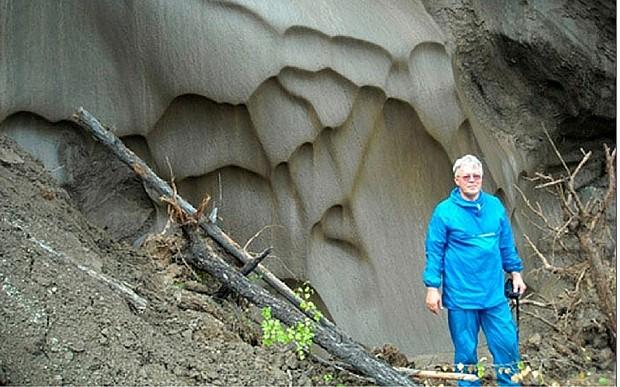In 2009, a freakishly old bacterium was pulled from the Siberian permafrost. Discovered in the Sakha Republic, the microorganism was found to date back to around 3.5 million years ago.
Scientists named it Bacillus F and have been experimenting with it ever since. Why their interest in this ancient bacterium? Well, as it turns out, Bacillus F was very much alive and kicking when researchers came across it. That's right, it somehow survived millions of years buried in Siberia.
Hence, there's this rumor going around that the bacterium might hold the key to immortality. You know, humanity's deepest desire ever since the first Homo sapiens sapiens walked the Earth.
Even more puzzling, experiments carried out on animal models seem to confirm this theory. Thus, scientists say that, once injected with Bacillus F, lab mice lived longer than other rodents left to fend for themselves. The mice exposed to the bacterium also stayed healthy well into old age.
Besides, seeds treated with this bacterium sprouted at temperatures of just 5 degrees Celsius (41 degrees Fahrenheit), suggesting that Bacillus F had made them more resistant to frost.
Then there's the scientist who injected himself with Bacillus F
Just the other day, in an interview, Russian scientist Anatoli Brouchkov, the head of the Geocryology Department at Moscow State University, confessed to having injected himself with this ancient bacterium about 2 years ago.
He did it because we has sick and tired of tedious studies on mice and whatnot, and wanted to test the bacterium's wondrous properties on himself. Somebody had to be the first and, well, he volunteered.
“After successful experiments on mice and fruit flies, I thought it would be interesting to try the inactivated bacterial culture,” Anatoli Brouchkov explained his bold move to The Siberian Times.
True, this little stunt wasn't exactly a proper scientific investigation, and Anatoli Brouchkov is the first to admit it. All the same, he says he's yet to experience any side effects. In fact, he's never felt better.
Since he injected himself with Bacillus F in 2013, he hasn't had a single flu episode. Besides, he says he feels more energetic and so can spend long hours at work without feeling the need to stop and rest.
“It wasn't quite a scientific experiment, so I cannot professionally describe the effects. But it was quite clear for me that I did not catch flu for two years. I started to work longer,” the researcher said.
Besides, Anatoli Brouchkov suspects that, as the Siberian permafrost is thawing, odds are that people in the Sakha Republic have been living with this bacterium for years. This might explain their longevity, the researcher proposes.
Well then, what is it that is so special about this bacterium?
As mentioned, Bacillus F was alive when scientists recovered it from the frozen ground. This means it must have some sort of built-in biological mechanism allowing it to survive in harsh environmental conditions.
The bad news is that, although they've been poking at this millennia-old organism for years now, researchers are still pretty much clueless about what this mechanism might be and how we could use it to help ourselves live longer.
When they exposed mice to the bacterium, specialists noticed their immune system working harder. Perhaps this might explain why they lived longer and stayed healthy in old age, with females past their prime even having babies.
Still, there's plenty of work left to do to understand exactly what changes occur in a body that's been injected with Bacillus F and how these changes translate into an increase in lifespan and better health.

 14 DAY TRIAL //
14 DAY TRIAL // 

